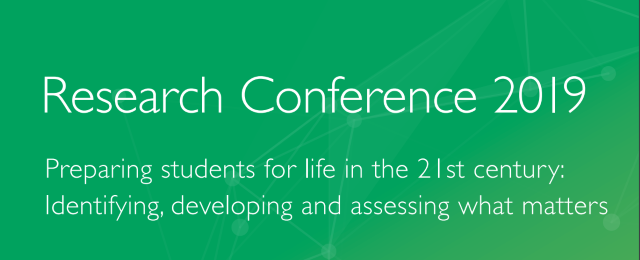
Sunday 4 August 2019
Start Date
4-8-2019 4:15 PM
End Date
4-8-2019 5:15 PM
Subjects
Digital literacy, Generic skills, Skill analysis, Achievement level, Learning analytics, Models, Knowledge base for teaching, Knowledge level, Summative evaluation, Primary secondary education
Abstract
There is a broad awareness of how information communications technology (ICT) digital literacy impacts everyday life. In schools, use of ICT tools has become mandatory. These tools include computers, tablets and mobile phones. These smart devices are used to send emails, browse the internet and make video calls. It is essential for teachers to identify student digital literacy levels through classroom activities and when to implement flexible ePedagogies for students who need help. This presentation will provide easy-to-follow steps to manage learning analytics to determine digital literacy skill levels. Learning analytics can be used for a range of purposes: to compile assessment reports for individual learners to know how they rate compared with other learners; to highlight students who may need extra support; to assist teachers to plan supporting interventions for individuals and groups of learners; to support professional development teams when considering new courseware design and development; and to support institutional/corporate marketing and recruitment management strategies. However, some people may find it daunting to undertake learning analytics. This presentation will show why this perception is wrong by explaining a prescriptive learning analytics planning model. This session will give participants an understanding of the skills they need to carry out their own learning analytics through careful preparation of their testing instruments and an understanding of the importance of validating their measurement tools.
Recommended Citation
McKay, E. (2019, August 04). Digital literacy skill development: Prescriptive learning analytics assessment model [Paper presentation]. Research Conference 2019 - Preparing students for life in the 21st century: Identifying, developing and assessing what matters. https://research.acer.edu.au/research_conference/RC2019/4august/5
Copyright Statement
Copyright Australian Council for Educational Research 2019
Place of Publication
Melbourne, Australia
Publisher
Australian Council for Educational Research (ACER)
ISBN
9781742865546
Included in
Educational Assessment, Evaluation, and Research Commons, Educational Technology Commons
Digital literacy skill development: Prescriptive learning analytics assessment model
There is a broad awareness of how information communications technology (ICT) digital literacy impacts everyday life. In schools, use of ICT tools has become mandatory. These tools include computers, tablets and mobile phones. These smart devices are used to send emails, browse the internet and make video calls. It is essential for teachers to identify student digital literacy levels through classroom activities and when to implement flexible ePedagogies for students who need help. This presentation will provide easy-to-follow steps to manage learning analytics to determine digital literacy skill levels. Learning analytics can be used for a range of purposes: to compile assessment reports for individual learners to know how they rate compared with other learners; to highlight students who may need extra support; to assist teachers to plan supporting interventions for individuals and groups of learners; to support professional development teams when considering new courseware design and development; and to support institutional/corporate marketing and recruitment management strategies. However, some people may find it daunting to undertake learning analytics. This presentation will show why this perception is wrong by explaining a prescriptive learning analytics planning model. This session will give participants an understanding of the skills they need to carry out their own learning analytics through careful preparation of their testing instruments and an understanding of the importance of validating their measurement tools.

